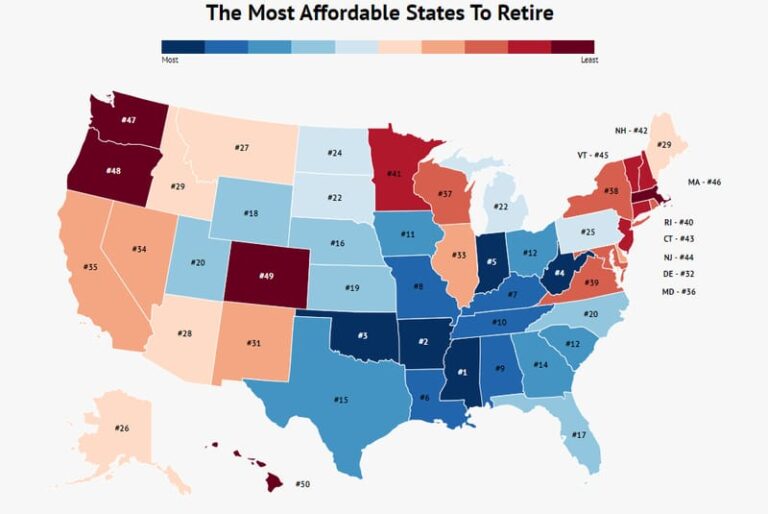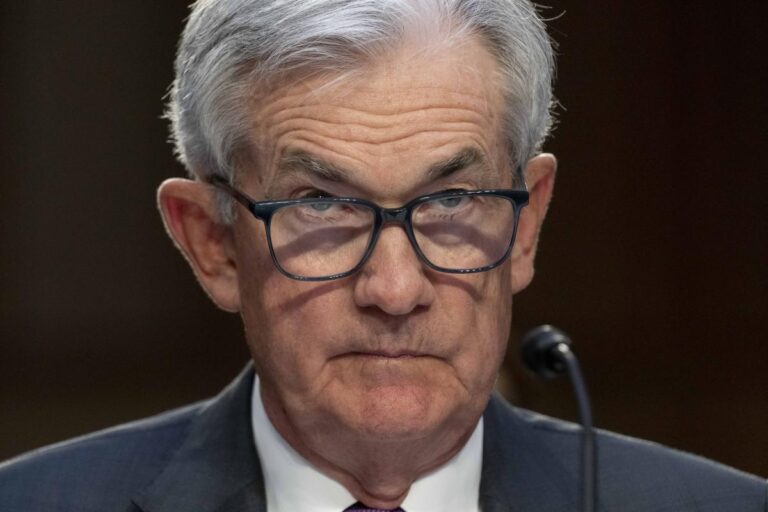Will the Bank of England Raise Interest Rates? And by What Margin?
The Bank of England (BoE) is set to make its latest interest rate decision on Thursday, August 4th. The consensus is that the BoE will avoid raising rates by more than 25 basis points; however, this decision is a very close call. In December, the BoE increased interest rates five times, with three of the committee’s nine members voting in favor of a half-point hike at its most recent two meetings.
Governor Andrew Bailey has stated that a half-point increase in interest rates is now on the table in addition to the customary quarter-point move. The BoE noted in June that it was prepared to act strongly if necessary.
The History of The BoE’s Rise Rates
The Bank of England became the first significant central bank to increase borrowing costs since the epidemic started when it raised its benchmark interest rate to 0.25 percent in December 2021.
The Monetary Policy Committee of the Bank of England voted eight to one to increase the BOE’s policy rate from a record low of 0.1 percent to 0.25 percent, arguing that given the labor market’s resilience, higher borrowing costs were necessary to restrain the rate of inflation.
In February, the Bank of England imposed back-to-back interest rate hikes for the first time since 2004. The Monetary Policy Committee voted 5-4 to approve the 25 basis point rate increase, bringing the primary Bank Rate to 0.5 percent as the central bank works to rein in surging inflation. Four members approved a 50 basis point hike to 0.75 percent in interest rates. The markets generally anticipated the rate increase.
In March, the central bank increased rates by 0.25 percentage points to 0.75%, the third consecutive increase at a policy meeting. The decision, however, wasn’t made unanimously as policymakers considered the less optimistic prognosis for the British economy.
In May, the rise to 1% was the fourth successive interest rate increase to tackle inflation. This was widely anticipated, and the vote to raise rates by a quarter-point to 0.25% was unanimous among members of the Monetary Policy Committee.
In June, the three dissenting members of the Monetary Policy Committee chose to support a 50 basis point rise to 1.5 percent in their vote to increase the Bank Rate by 25 basis points to 1.25 percent.
Food and energy costs skyrocketed in April, pushing inflation to a 40-year high of 9 percent yearly. The Bank anticipates inflation to rise to “slightly above 11%” in October, reflecting higher predicted household energy prices following an anticipated further increase to the U.K. energy price cap.
The economy unexpectedly contracted by 0.3 percent in April, following a 0.1 percent contraction in March, marking the first consecutive monthly declines since April and March 2020. The OECD has predicted that the U.K. will have the weakest G-7 economy in 2019 as higher interest rates, tax increases, reduced trade, and skyrocketing food and energy prices hurt households.
Pressure on the Bank of England to Address Rising Prices
According to the most recent data from the Office for National Statistics, U.K. inflation increased to a 40-year high of 9.4% in June 2022.
The increase was slightly more than the 9.3 percent economists had projected. The Consumer Prices Index (CPI), which measures monthly price changes, rose by 0.8 percent in June 2022 compared to a gain of 0.5 percent in June 2021.
According to the ONS, the latest CPI number was slightly higher due primarily to higher gasoline and food prices, which outweighed downward pressures from the second-hand car market and audio-visual equipment.
Due to rising energy prices, a squeeze in the post-pandemic global supply chain, and the ongoing war in Ukraine, the U.K., and many other nations have recently experienced the brunt of inflationary economic pressures.
The Bank of England has responded to these pressures by raising interest rates five times in the past six months, with two more rate hikes expected before the end of the year.
U.K. inflation now teeters at nearly five times the government’s 2 percent target set for the BoE. According to the BoE’s projection, inflation will reach a peak of approximately 11% later this year before beginning to decline in 2023.
In his speech during the City of London’s annual Mansion House dinner, BoE governor Andrew Bailey said that interest rates might go up by half a percentage point in early August while toughening the bank’s language on addressing rising prices.
“Another month and another spike in inflation as the persistent pressure on consumers continue,” said Richard Carter, head of fixed interest research at Quilter Cheviot. Due to ongoing high energy and gasoline costs, the U.K. consumer prices index came in at 9.4%, somewhat higher than expected.
“The Bank of England will be feeling the heat from recent events, and it faces a very challenging task to ensure that the economy has a smooth landing. Fears of a recession are increasing, and if additional drastic interest rate increases are needed, the economy may easily fall into contraction,” Richard explains.
“The Bank is still in a bind, and we think rates will go up by 0.25% in August, with the possibility of another 0.25% before the end of the year. However, if inflation spirals out of control, the Bank may have to act more aggressively, which means rates could go up by 0.50% as soon as next month,” Richard adds.
The Predicted Raise Rates
Ahead of the Bank’s August meeting, analysts will be closely watching to see if the BoE raises rates by more than 25 basis points.
29 out of 54 economists surveyed by Reuters between July 13 and 25 indicated the BoE would maintain its current 25 basis point target rate of 1.50 percent at its next meeting on August 4th. The 50 basis points predicted by the remaining 25 would bring it more in line with its competitors.
The narrow split was the opposite among gilt-edged market makers. Eight of the 15 respondents predicted a rise of 50 basis points, while seven anticipated an increase of 25.
The BoE has been clear that it wants to return rates to more normal levels sooner rather than later, and with inflation now at a four-decade high, there is a growing case for the BoE to act more decisively.
While a 25 basis point hike is still the most likely outcome, the BoE will have to weigh the risks of inflationary pressures against the potential harm to an economy that is only just beginning to recover from the pandemic.
The MPCs Predictions
The following is a recap of recent remarks made by MPC members ahead of the MPC’s upcoming announcement on August 4th:
Chief Economist, Huwa Pill
July 7th: “At least, in my opinion, the statement (by the MPC in June) shows a willingness to adopt a faster pace of tightening than we have seen so far in this interest rate cycle,” Pill added.
“The focus will be on the evidence of more sustained inflationary pressures, which, in my opinion, emphasizes potential second-round consequences in price- and wage-setting behavior.”
Assistant Governor, Dave Ramsden
July 14th: “We will need to react to whatever happens, but we want people to realize that we won’t let high inflation become prolonged and spiral out of control like it did in the ’70s and ’80s.”
External MPC Member, Michael Saunders
July 18th: Financial market predictions that the Bank Rate, now at 1.25 percent, would reach or surpass 2 percent during the following year were neither “implausible” nor “unlikely,” Added Saunders.
However, he added, “the crucial point is that the tightening cycle may – in my opinion – still have some way to go, rather than focus on a specific prediction for Bank Rate over the next year.”
After the meeting in August, Saunders will depart from the MPC.
Governor, Andrew Bailey
July 19th: “When we meet next, a 50 basis-point hike will be on the table. However, anyone who expects fifty basis points to be locked in is doing so on their own opinion,” Bailey stated, mentioning the already-slowing economy.
In light of recent comments from Bailey and the belief that the situation calls for more robust action, HSBC’s Elizabeth Martins noted the change in their forecast from 25 to 50 on what she terms an “extremely close” decision.
“We don’t believe a 50 bp change here represents the BoE abandoning the comparatively dovish strategy it has adopted up to this point,” Martins continued, “given the extremely delicately balanced context.”
“We still expect it to forecast a slowdown in growth, an increase in unemployment, and a medium-term inflation rate of 1.3 percent – the largest forecast undershoot since 2009,” she stated.
Thus, it is evident that the BoE is considering a more comprehensive range of options for interest rates than in previous meetings.
Final Thoughts
Most respondents in the Reuters poll still expect the BoE to stick with a 25 basis point hike, but the margin is very close. Others expect the Bank Rate to end the year at or near 2.25 percent, but some see it going as high as three percent.
The BoE has made it clear that they are not afraid to take intense actions if necessary, and with inflation at a four-decade high, they may be forced to act more decisively than in the past.






